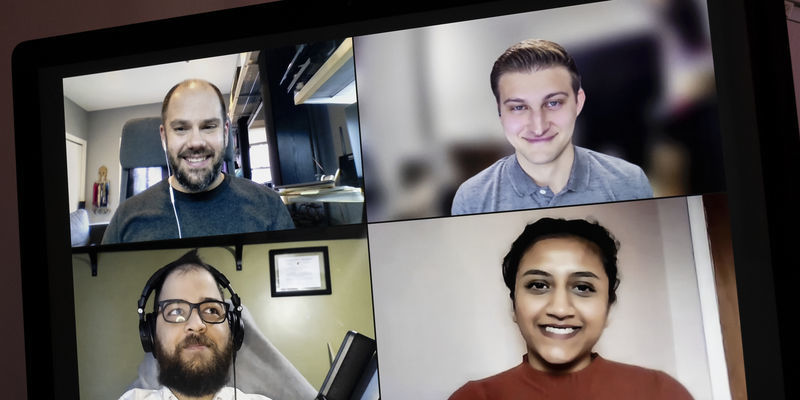Temple researchers help people with neurodevelopmental disabilities succeed in IT jobs
A $2.3 million award from the National Science Foundation supports the use of artificial intelligence in the development of virtual job assistance

A multidisciplinary team of researchers from Temple has been selected to receive a four-year, $2.3 million Future of Work Award from the National Science Foundation to develop personalized virtual job assistance. These virtual aids would allow individuals with neurodevelopmental disabilities to succeed in entry-level information technology (IT) jobs.
With varied expertise in data science, software engineering, human-computer interaction, behavioral science and special education, the team aims to create an artificial intelligence (AI)-enabled software that will help employers implement effective strategies for job customization, training and support.
Approximately 4% of children and young adults in the U.S. are diagnosed with neurodevelopmental disabilities, such as autism, that include disturbances of movement, cognition, hearing and vision, communication, and emotion and behavior. Such disabilities lead to difficulties with schooling, independent living and, importantly, employment.
The researchers are focusing on a large segment of this growing group, those who have mild or moderate neurodevelopmental disabilities. These individuals qualify for some job training and support programs, but not for the more intensive lifelong support afforded to those with more significant disabilities—particularly after they turn 21.
“After high school, they may get a few months of career training and then are supposed to be able to find jobs and keep them,” said Slobodan Vucetic, the principal investigator who is a professor of computer and information sciences (CIS) and director of Temple’s Center for Cognitive Computing in the College of Science and Technology. “Also, typically the jobs they find are minimum wage positions.”
However, many of these individuals have quantitative skills and other capabilities that lend themselves to higher paying IT positions. Such jobs also often allow flexible hours and the ability to work from home—another plus for this population.
“We’re thinking of the AI platform as a job aid, a behavioral prosthetic that people can use to do things that they weren’t able to do before,” said co-principal investigator Donald Hantula, an organizational psychologist and associate professor of psychology in the College of Liberal Arts. “I don’t see anybody else addressing the employment needs of this population.”
Another co-principal investigator, Matt Tincani, professor and chair of the Teaching and Learning Department in the College of Education and Human Development, is a special education and applied behavior analysis (ABA) expert. “We’re trying to understand how to create AI interfaces that will help members of the neurodevelopmental disability community understand the task at hand and learn how to do it more efficiently,” he said.
Also on board as co-principal investigator is Eduard Dragut, associate professor of CIS.
CIS PhD student Beth Garrison, CLA ’07, EDU ’09, whose doctoral advisor is Vucetic, was instrumental in launching the research. After earning her master’s degree in applied behavior analysis—with Hantula as her advisor—Garrison worked as an ABA therapist, trained behavioral therapists to work in clinical and vocational programs with individuals who have neurodevelopmental disabilities, and served as the CEO of the Autism Cares Foundation’s Adult Services Division.
Said Garrison: “I started thinking about how I could support individuals I’ve worked with who—despite their interest in computers or technology—ultimately moved into jobs, such as sheltered workshops, that they wouldn’t have chosen for themselves had they been given more support and job training for what they truly wanted to do.”
—Bruce E. Beans



